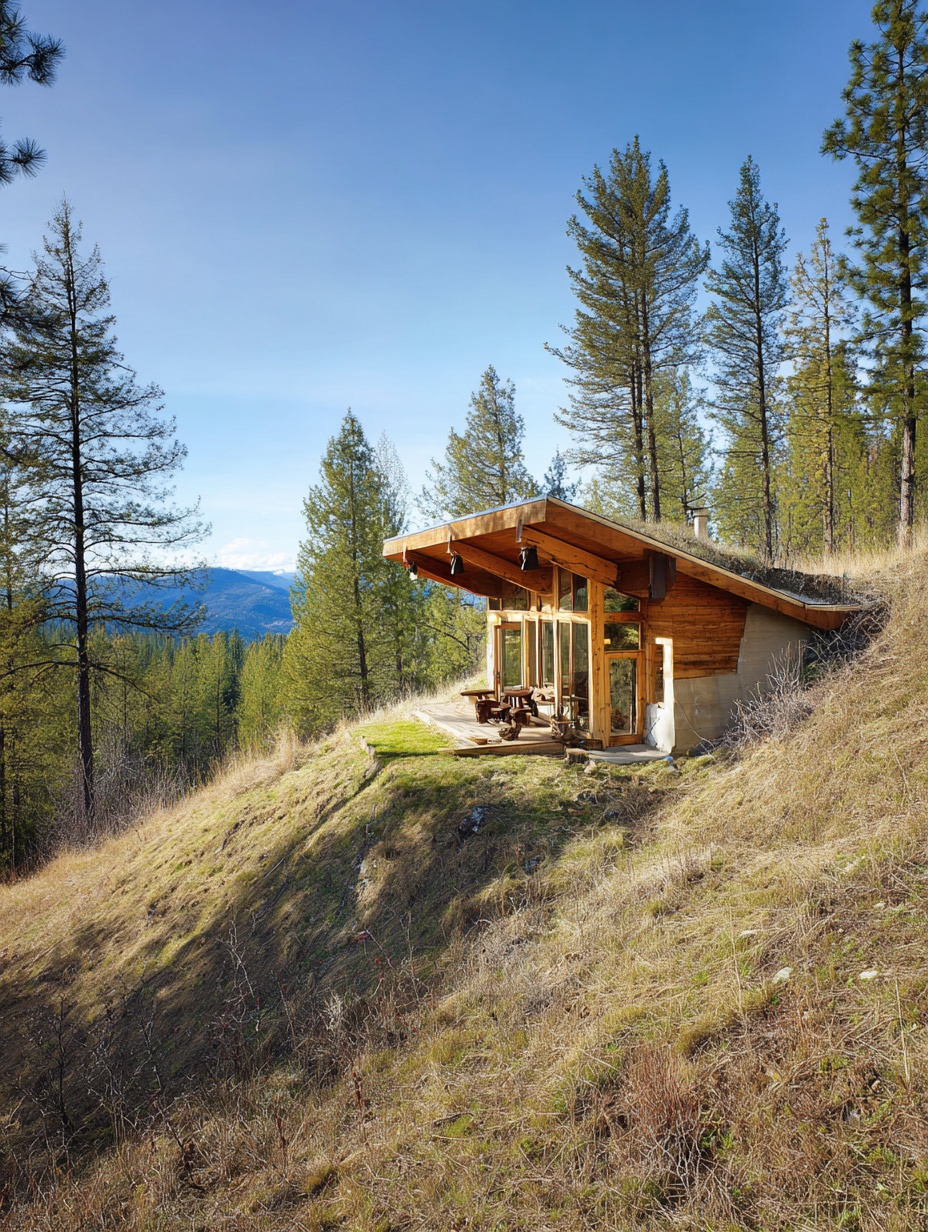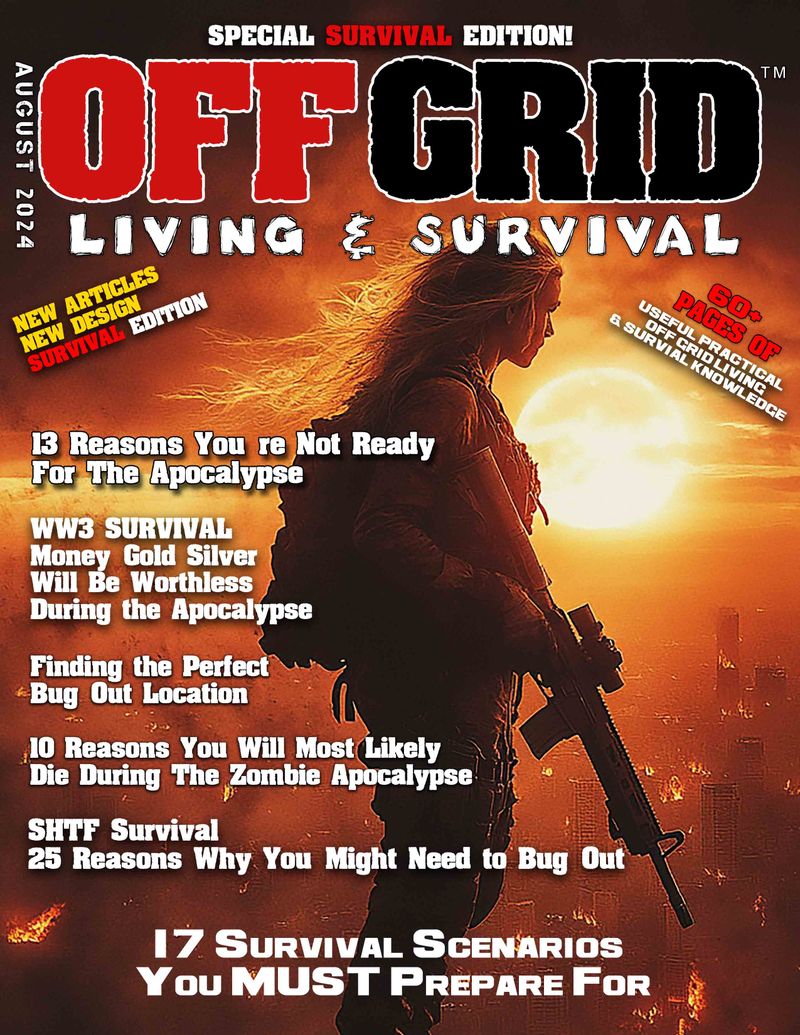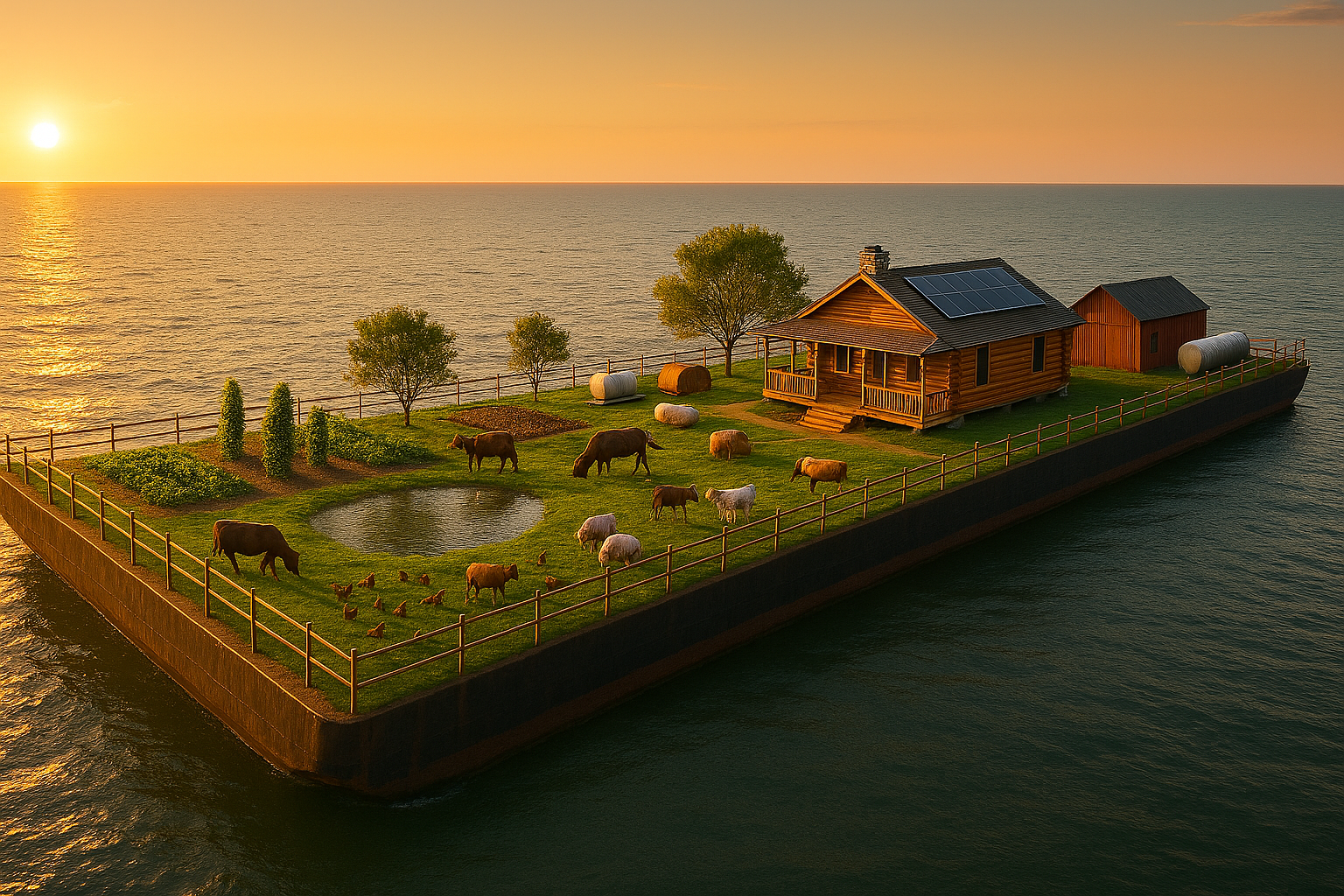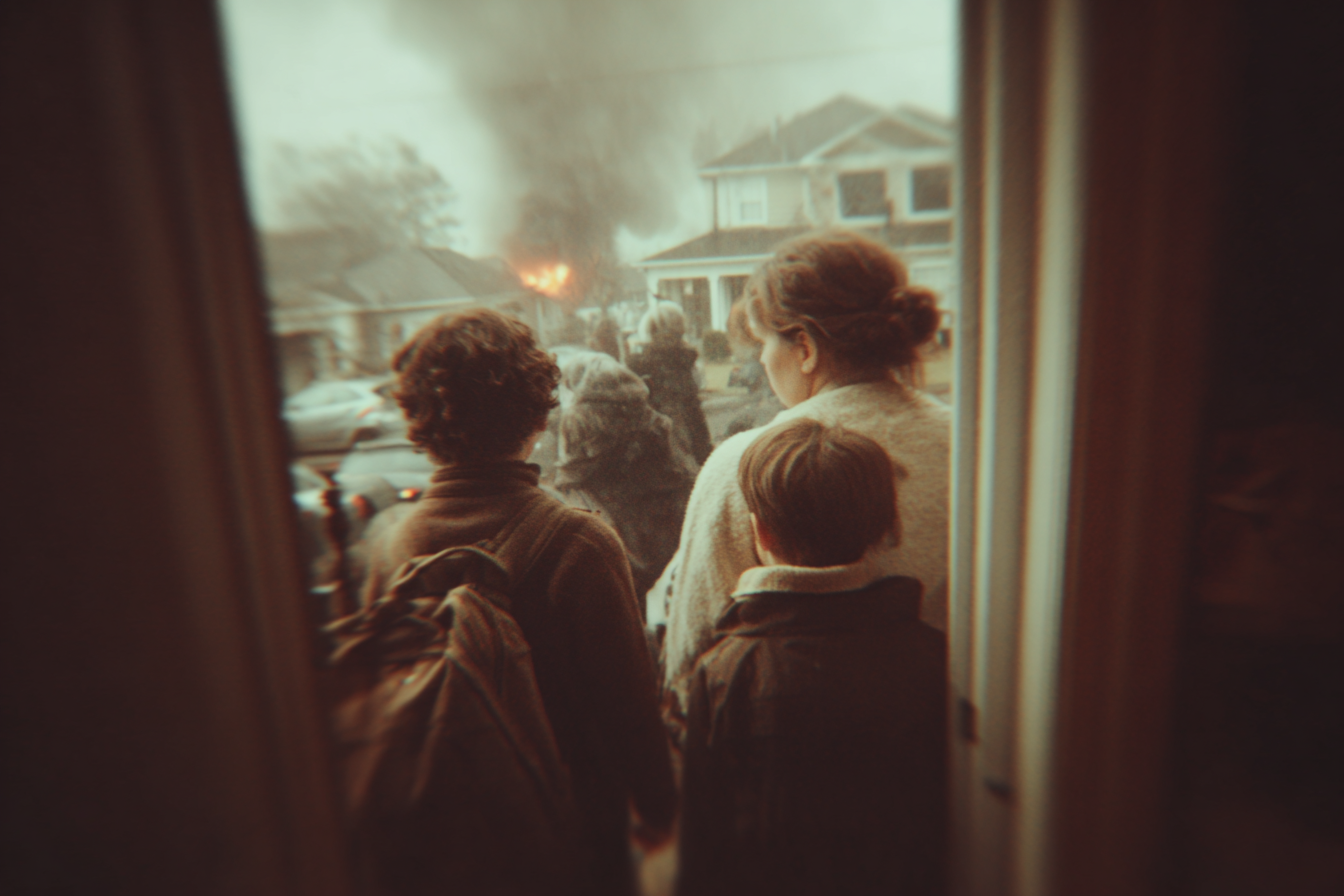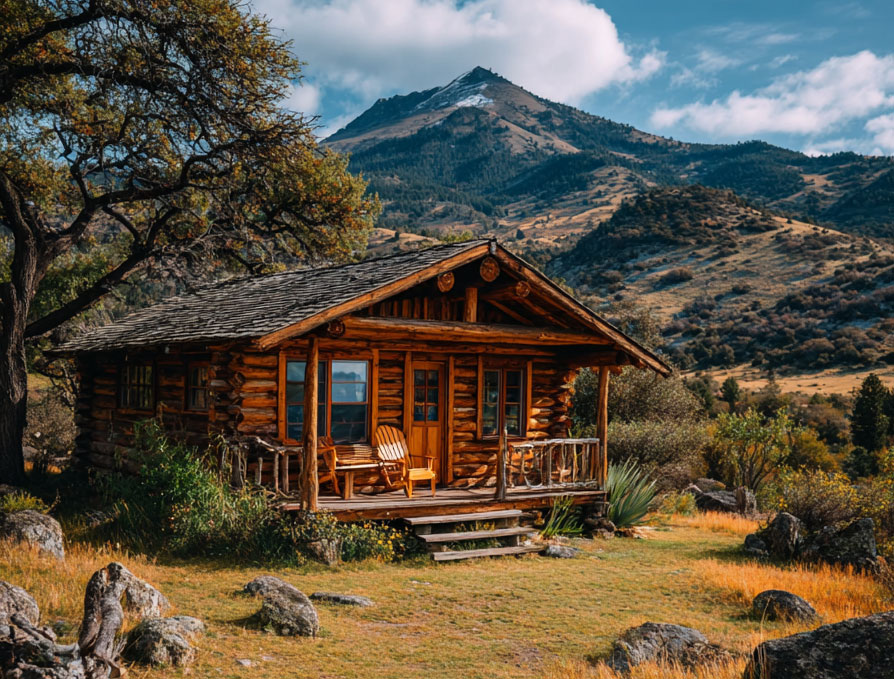There’s something about this style of home that I love. Subterranean homes are easier to heat and cool too. They’re more secure and they offer great views if they’re built into a high gentle slope. It’s wise to consult with an engineer and architect when building something like this, but it’s by far one of my favorite kinds of dwellings. Very energy efficient.
Throw in 5-7kw of solar panels, a large 40-60kwh battery backup, a small wind turbine, 10k Watt pure sine wave inverter/charge controller and DC to DC charger, meter/breakers/etc., a propane generator and a 100 (or even 1000 gallon) propane tank and you will never be without power. Newer LiFePO4 batteries will last 10 years easy, and up to 15 years or more if you maintain them well. So will the solar panels. Buy the best you can. Don’t scrimp on the system.
Some people will ask, “What’s the point of spending $25k on a solar/wind power system, why not just pay $150/month for city power? It’s less money and more reliable over time.” Fair question. Not true, but it’s nuanced. Going off grid is about being self reliant and more free. Producing your own everything, or at least everything that’s technologically possible to produce on your own. This saves you money on every aspect of your home of the course of ownership. So it’s not as simple as just replacing your $150/month electric bill with a $25k solar/wind/generator system with batter backup. It’s not a direct comparison. They call that a false equivalence fallacy.
The reason the $25k power system is better and cheaper than the $150/month over time isn’t just the those two things combined. It’s everything on your off grid homestead. The tens of thousands of dollars you save by building your own cabin, buying rural AG/Residential land, doing your due diligence etc. All saves you many tens of thousands of dollars in the long term and the short term when you’re building.
Sure…it cost more upfront when you invest in your own power system to generate the power you need, but it’s not just about that freedom and self reliance, it’s about building the infrastructure for longevity.
That’s what this is about! So when you factor in the 30% to 50% or more you will save by building everything you can yourself, and installing the infrastructure to sustain yourself and your family, then the saving way more than outweigh the upfront costs. And that’s before you factor in the freedom you’re investing in. (If you question these numbers go read my other articles on my site before trying to argue your point; seriously. This is what I do for a living. Go look at my numbers. If you still think I’m wrong, say so and show me where I’m wrong. I’m not attached to my ego so much I won’t admit if I’m wrong. But I’m not wrong.)
DIY will save you money. Investing in infrastructure first as your foundation will give you freedom and longevity and you will be self reliant. These systems are scalable for you as your family grows you can add more capacity because you will have saved enough money over the years to have the ability to scale and grow.
Off grid living is not a lie like some believe it is. They’re either being sarcastic and calling out the fake off gridders and those that going into this blind and ignorant, or they’re just not understanding the nuance and long term thinking behind it.
Off grid living takes money. That’s a fact. But here’ a little something that will help you.
It’s easier to increase your income than it is to save enough money to go off grid because you’re working against inflation and bills at the same time you’re trying to save. If you’re trading your hours for dollars you’re in a worse spot because then you’re sacrificing time with family for dollars. There’s a point at which it becomes unsustainable. At that point you must make a decision. Work more and lose out on family time or work smarter and work for you and your by walking away from the system, starting your own business, increase your side hustle first. Don’t walk away until you’re making at least 3X your main income consistently and you are financially stable. Then it might be the time to make the move. It’s also a good idea to have enough money in the bank 6-12 months of emergency bill money to pay all your expenses. On top of that you’re going to need the cash on hand to to actually go off grid, buy land, and purchase all the tools and equipment you’re going to need to go off grid.
So how much do you need? You can do it with $50k to $100k. You’re not going to build a big house, but you can do it a little at a time. Find your land first. Do your due diligence. (I’ve written on this topic extensively on my site and in my magazine; go read my blog and subscribe to my magazine, all the information you need is there to make wise decisions and build you off grid dream!) Always always always do your due diligence. I cannot stress this enough. Be obsessed with it, but not so obsessed that you fall into analysis paralysis and never get out of the planning stage. (trust me on that part). Do your homework on the land, legal and physical access, liens/title search, perc test for septic, test soil and water for toxins, check around the area for wells and how much they cost, how deep will you have to drill for water. Ideally find land with water on the property. Make sure you get water rights and mineral rights. This is not a given, so make sure you get those. Make sure you’re not in a HOA or rural subdivision. No restrictions! By land in unincorporated townships and counties with fewer local ordinances and land use restrictions. Don’t ever buy landlocked land. This means land with no access. If it’s a larger parcel but it’s cheap, then there’s is likely something wrong with it. Check the access! If you can avoid it avoid buying property with an easement. Easements can become trouble down the line if a neighbor decides to block your easement. Yes it’s illegal, but it’s a contract law issue, a civil law issue, not a criminal one. So it will cost you a lot of money fighting it if you’re not careful. Avoid easements if possible. You want legal and physical access from a PUBLIC road. If you have to go down a private road owned and maintained by someone else they can physically (not legally) stop you by putting up a gate or fence or boulders and then what? Avoid that by ensuring the property has physical legal access directly from a public road. There’s a lot more…hundreds of things you need to know. Lot’s of nuance and lots of little things that can derail your off grid dream if you don’t do your due diligence.
I could keep writing…this is just off the top of my head in this random post. You want more detailed information and numbers? Go check out my magazine and subscribe. Go to my website, there’s over 180 articles FREE for you to read. Go subscribe to my daily email newsletter, it’s free!
Thanks for reading.
HAPPY OFF GRIDDING!
MAY ALL YOUR OFF GRID DREAMS COME TRUE!

